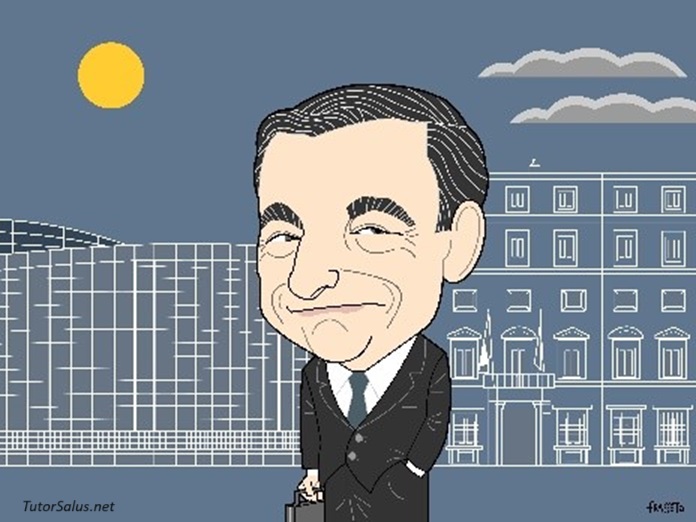received.

In the photo : a detail from the monumental Sicilian cart on which clearly visible is the quote from ‘The kiss’ (1859) by the painter Francesco Hayez – Milanese by adoption – whose art, proven and excellent, is also often referred to that unitary inspiration of the movements that constituted the Risorgimento until the advent of Garibaldi – present, by the way, in the room dedicated to the ‘Opera’ – and therefore dedicated to the liberation of Italy. This room is instead dedicated to ‘Sicily’, where the designer Domenico Dolce is originally from, with the master craftsmen at work in the proposed videos.
‘Dal cuore alle mani’, by Dolce & Gabbana[1] – Palazzo Reale, Milan.
If it were only a matter of wonder – rightly prompted by the magnificent displays of the exhibition – however, we would still be partial.
What precious artefacts gradually offer us - with the enviable humility of an almost forty-years-old Haute Couture workshop and which to this exhibition continues to attract long queues of visitors, often including foreign ones - is the description of a job which keeps professionally hidden its most laborious and painful part – ‘beloved’ is the correct word – for a result that, to be able to be offered to the client and the public, must first and foremost be personal and one’s own.
The subjects is about one’s liking for work – where no reductivity is allowed if an undoubtable success rewards its bearers, excellent stylists and entrepreneurs – as an absolutely individual path until you can meet your partner, and not instead as a fixation to an object in which one can never invest talent. Thinking here moves along multiple paths – as the unconscious correctly does when wants to communicate, overcoming the darkness of an aggressiveness which not belongs to that – and the high road is not always the most useful if it had to cut down forests and flatten hills : here are the well-marked and effective side streets, which then also say a lot about a woman who is desired and known, not unattainable.
The male position maintains a superiority over the female, despite the different environments of the exhibition, but it is only explained towards the end of the exhibition – and strongly recalls, even it is not mentioned, ‘The storm’ by the sixteenth-century painter Giorgione (1477 – 1510) in which the man defends the young mother – where on the throne is a small, precious trunk which depicts her head and smiling face, she is flanked by two knights behind which the renewal watches of an Art mosaic, maybe the Byzantine Christ and Pantocrator. The dazzling of enormous paintings, that repurposed tinkling of crystals and mirrors, the anguish of a devotion that does not reveal itself and those mighty traditions, powerful as pillars of ancient gods until the explosion of luxury, the superabundance of the ‘Opera’, from which even a furred and arrogant Attila[2] draws : all these mix and confuse sensations without losing that unshakable thread of one’s thinking, which however constitutes us only when – once established the place for the partner - we keep it.
Marina Bilotta Membretti / Cernusco sul Naviglio – May 19, 2024
[1] ‘Dal cuore alle mani’ is ongoing until July 31st : in the exhibition, presented as Craftsman of Art, selected artefacts are displayed, Haute Couture clothes and accessories, from ‘Dolce & Gabbana Srl’, based in Milan and founded in 1985 by the Italian stylists Domenico Dolce e Stefano Gabbana. The atelier, and Haute Couture workshop, has been reconstructed at the center of the exhibition.
[2] Attila (395 a.C. – 453 a.C.), king of Huns.






